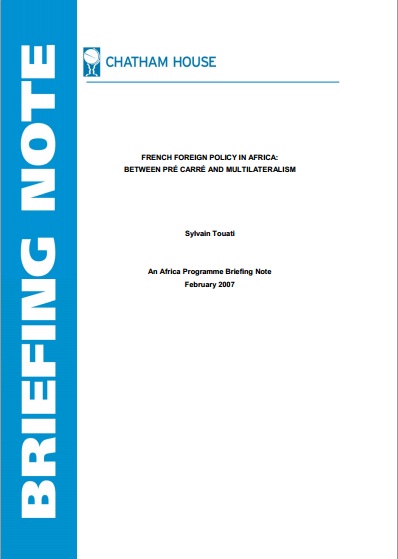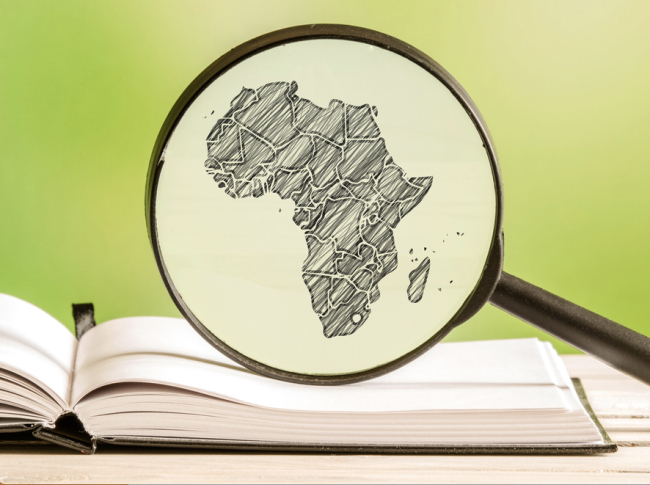French Foreign Policy in Africa: Between Pré Carré and Multilateralism

France"s monopoly of Africa is under threat. The last 50 years have seen the French battling to hold on to the ‘privileged relationship" with their former colonial empire, and a number of factors have forced the once imperial power into redefining its affiliation with ex-colonies, such as new laws on aid distribution, the integration of the EU and modern economic reforms.
In the post-Cold War era, ‘multilateralism" has become the latest political buzzword, and in its wake a notable shift in French policy in Africa has emerged. This shift, combined with a new generation of French politicians claiming to herald a fresh approach, might suggest that changes are on the way.
As this paper will discuss, however, France has been reluctant to adapt. Certain members of the French elite have benefited from neo-colonial models and are in no hurry to normalise dealings; it"s instructive, therefore, to examine what adjustments have come out of multilateralism and if a new class of politicians really can bring about change.

Available in:
Regions and themes
Share
Download the full analysis
This page contains only a summary of our work. If you would like to have access to all the information from our research on the subject, you can download the full version in PDF format.
French Foreign Policy in Africa: Between Pré Carré and Multilateralism
Related centers and programs
Discover our other research centers and programsFind out more
Discover all our analysesGabon: Has an — Almost — Exemplary Transition Produced a New Political Model?
In two rounds of voting, on September 27 and October 11, 2025, the citizens of Gabon elected the members of both their local councils and the new national assembly. This marked almost the final stage of political transition, little more than two years after the coup d’état that had overthrown the more than five decades old dynastic regime of the Bongos — Omar, the father, who died in office in 2009, and then his son Ali, who is now in exile.
Claiming "The People": Youth Booms, Ailing Authoritarians and "Populist" Politics in Kenya, Uganda, and Tanzania
This study analyses the emergence of so-called “populist” political tendencies in three East African countries: Kenya, Uganda and Tanzania. It builds its analysis on a wider discussion of the term “populism”, its use and applicability in (eastern) African settings before going on to examine the drivers of three cases of populism: William Ruto’s 2022 election victory in Kenya and the “Hustler Nation”; Bobi Wine’s opposition to Yoweri Museveni in Uganda; and John Magufuli highly personal style of government in Tanzania.
The Contradictory Impacts of Western Sanctions on Economic Relations between Russia and Sub-Saharan Africa
How does Russia maintain economic ties with Africa despite Western sanctions? An analysis of investments, trade, and the circumvention strategies deployed by Moscow.
The Revenue Sources Sustaining Sudan’s Civil War. Lessons for the year 2023
Wars require money and resources, and often, most conflicts involve controlling sources of income and supply lines or denying them to enemies. This has been the case in Sudan’s past conflicts and is again as the civil war—between the Sudan Armed Forces (SAF), commanded by General Abdelfattah al-Burhan, and the paramilitary Rapid Support Forces (RSF), commanded by General Mohammed Hamdan Daglo “Hemedti” —has sunk into a protracted conflict.










